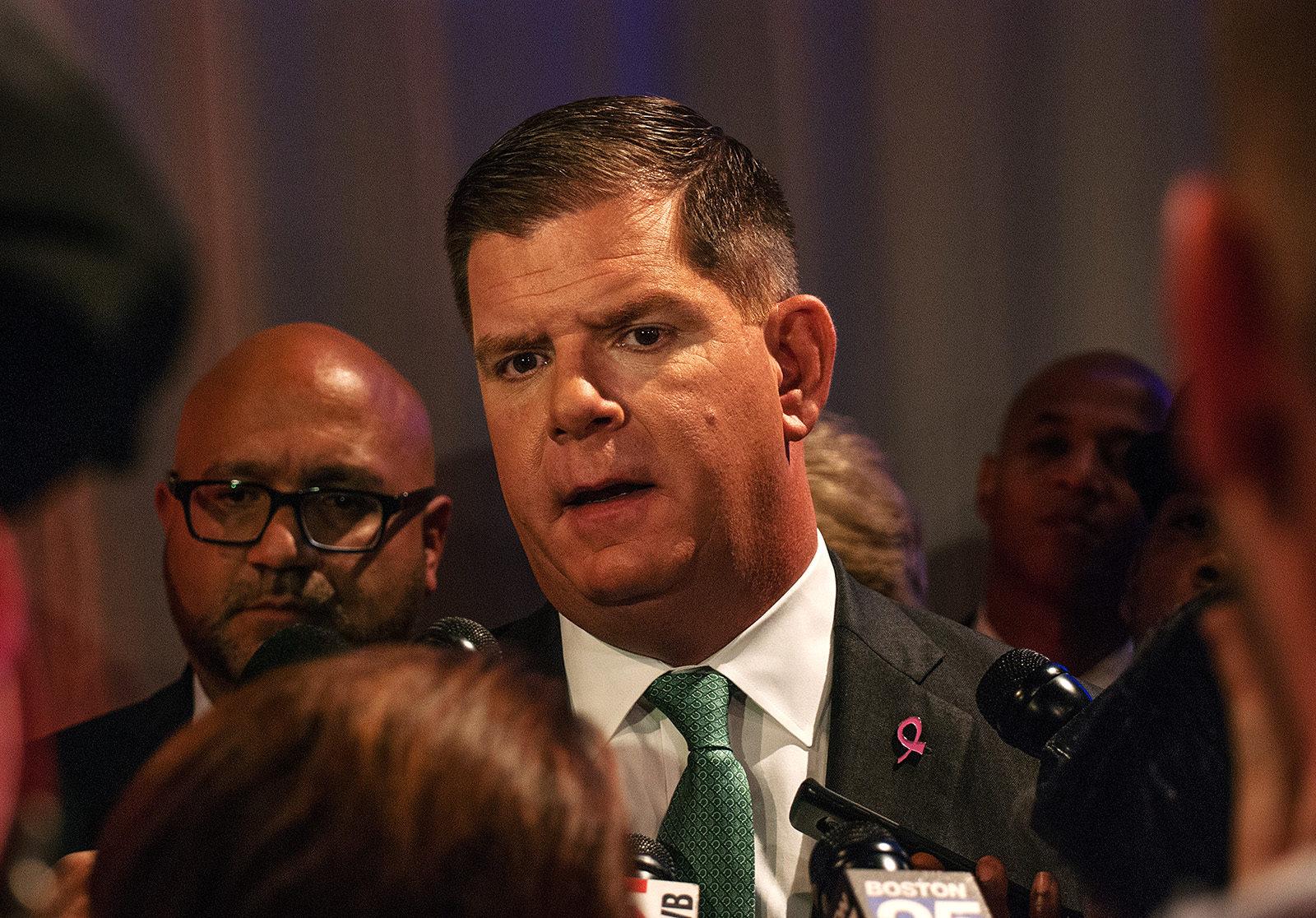When a free speech rally was planned on the Boston Common this August, Mayor Martin Walsh urged people to “stay away.” After the rally, which drew barely 20 participants and almost 40,000 counter-protesters, Walsh tweeted, “Once again, Boston has proved hate has no place in our City.”
One of the rally’s organizers, Brandon Navom, is now suing Walsh over these remarks and others, calling them “defamatory comments” and “libelous statements.”
A software engineer in Lowell, Navom lost his job a few days before the rally when a “mob” of people took to the internet to track down his employer and harass them until they let him go. In the process, his reputation also took a significant hit. And according to Navrom, Walsh is to blame.
He is seeking $100 million from the mayor — $50 million in actual damages and another $50 million in punitive damages. His complaint accuses Walsh of intentionally lying, or at the very least speaking recklessly about the rally and mischaracterizing its participants as racists and white supremacists, all for his own political gain.
Though this is not true, it is also not entirely without merit.
Walsh never called the people who were rallying white supremacists or neo-Nazis, or anything else that they were not. But he was speaking to appease the greater public, who saw them as just that. None of the rally’s participants identified themselves with a hate group of any kind, yet with tens of thousands of people protesting them, it was clear that people felt this rally had connotations much more malicious than simply free speech. No one was opposing the idea of free speech itself.
It is impossible to prove in retrospect what the intentions of the ralliers really were this summer. Were they trying to replicate the rally in Charlottesville from the week before? Would they have shown their true colors as something much worse if it weren’t for all of the protestors? Or were they just promoting free speech, plain and simple? We can never know.
And neither could Walsh. Of course he spoke out against hate. How couldn’t he have? You can’t be wishy-washy, you can’t say there’s two sides — we all know what happens if you do (see Donald Trump post-Charlottesville).
Besides, Walsh had an election to think about. He told Boston what they wanted to hear. He told them that this is a city of love, not hate. If he hadn’t, people would have lost a lot of faith in him as a leader, and rightly so.
Boston’s free speech rally this summer didn’t get out of control, but as we saw in Charlottesville, it absolutely could have. It’s always better to take a strong stance against racism and bigotry than to speak cautiously, even if that comes at a cost. Because Walsh made it clear that Boston wouldn’t accept that kind of behavior, when it came time for the rally, we didn’t see it.
Navom certainly suffered some consequences because of how the rally played out — and he didn’t even end up attending it — but that’s not on Walsh.
The entire Boston community came together against Navom and the rest of the ralliers. It was the result of thousands of people, all appalled by the rise of white supremacy, all refusing to let that attitude into Boston, that Navom ended up the way he did. Walsh played a part in it all, but his voice was only one of thousands.
As far as the lawsuit goes, Walsh probably won’t be shelling out $100 million anytime soon. Slander is incredibly hard to prove, and the factors that caused Brandon Navom to lose his job and his reputation are a lot more complex than what one man says, even if that man is the mayor of Boston.
Navom’s lawyer is hoping to get a trial in western Massachusetts — someplace a little further away from all of Walsh’s influence and support. But what they are really hoping to find in western Massachusetts is a jury a little less liberal than the one he would face in Boston, a jury who might not associate a free speech rally with white supremacy. Maybe they’ll find what they’re looking for, but after everything that has gone down this year, probably not.
White supremacy and free speech aren’t, of course, synonymous. Not even close. But it does seem to be the mask that racists today are hiding behind to legitimize their hateful speeches and gatherings and rallies. We cannot take the idea of free speech at face value, and use it to either commend or condemn a group without any more information. We need to dig deeper than that.
Walsh has been in the public sphere for a long time. The things he supports are the things Bostonians support, and this was no exception. But this kind of lawsuit is a hazard of the job — a hazard of making any kind of public statement, really. It’s a risk the mayor had to take.
By saying the things he did, Walsh ruffled some feathers and hurt some reputations. But we’re a lot better off because of it.

















































































































